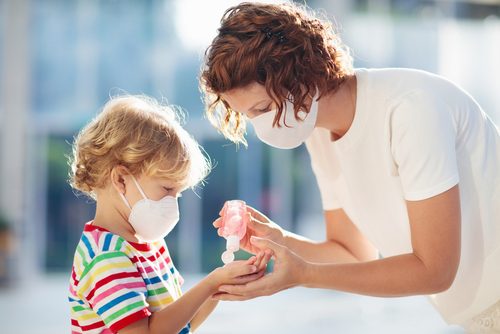
The World Health Organization (WHO) describes the coronavirus (COVID-19) as an infectious disease caused by a newly discovered coronavirus. While the majority of people who are infected with COVID-19 will not need special medical care, certain individuals are at a much higher risk of experiencing serious illness or death.
Those who are the most vulnerable to COVID-19 include the elderly, those with compromised immune systems, and people with underlying medical conditions, such as cancer, diabetes, cardiovascular disease, and chronic respiratory disease.
Signs and Symptoms of COVID-19
According to WHO, the COVID-19 virus mainly spreads through saliva droplets and discharge from the nose when infected individuals sneeze or cough, which is why it’s so important to practice “social distancing” and stay at least six feet away from people. It’s also critical to practice respiratory etiquette by coughing or sneezing into a flexed elbow.
What are the symptoms of COVID-19? The Centers for Disease Control and Prevention (CDC) reports that COVID-19 cases have ranged from mild to severe and some have resulted in death. Generally, the symptoms appear between 2 and 14 days after exposure, according to the CDC.
The symptoms of the coronavirus include fever, cough, and shortness of breath. Emergency signs include trouble breathing, persistent pain or pressure in the chest, confusion, inability to rouse, or bluish lips or face. If you experience any of these emergency signs, contact your healthcare provider immediately and they will direct you to the appropriate facility.
Protecting Yourself and Others
The best way to prevent COVID-19 is to understand that it’s spread mainly from person-to-person. So, keep a six-foot distance between you and others and follow these tips:
- Wash your hands often with soap and water or use an alcohol-based hand sanitizer.
- Always wash your hands after coughing, blowing your nose, or sneezing.
- Avoid touching your eyes, nose, and mouth. If the virus is on your hands from touching a contaminated surface and you touch your eyes, nose, or mouth, you can get infected.
- Avoid standing close to people who are sick.
- If you are stick, stay home.
- If you cough or sneeze, cover it with tissue or cover it with your elbow. Afterward, wash your hands with soap and water.
- If you are sick, wear a face mask.
- Every day, clean and disinfect frequently touched surfaces.
For more resources, visit the Georgia Department of Public Health website, or if you’d like to help those affected by COVID-19 in your local community, check out “Opportunities For Giving During COVID-19 Health Crisis.”
Categories: Announcements, Community Outreach, Firm News, Health & Wellness

